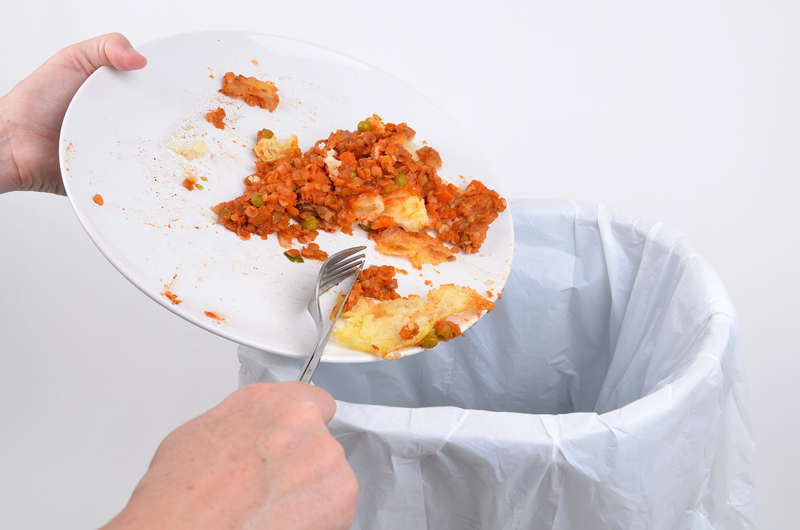Maximizing Sustainability with Restaurant Waste Recycling
In recent years, the food industry has turned its focus towards sustainability, with restaurants at the forefront of this transformation. The boost in restaurant waste recycling has paved the way to more environmentally-friendly practices that not only benefit the planet but also enhance business operations. This comprehensive guide explores effective strategies for maximizing sustainability through innovative waste recycling methods in the culinary sector.
The Importance of Waste Recycling in Restaurants
The global community's growing awareness of environmental challenges is directing industries towards sustainable practices. Restaurants, as major contributors to food waste, hold significant potential to instigate positive environmental changes by integrating waste recycling solutions.
- Reduction of Carbon Footprint: Restaurants generate substantial amounts of waste daily. Effective recycling can significantly reduce their carbon footprint by minimizing landfill contributions.
- Cost Savings: By recycling waste, businesses can lower disposal costs and even earn revenue by selling recyclables.
- Brand Reputation: Adopting green practices can enhance a restaurant's public image, attracting eco-conscious consumers.
Understanding the Different Types of Restaurant Waste
Before diving into recycling strategies, it is essential to understand the types of waste generated by restaurants. This knowledge is pivotal in implementing effective solutions.
- Food Waste: Spoiled or excess food that isn't consumed. This is one of the largest waste categories.
- Packaging Waste: Includes materials like plastic, cardboard, and other packaging resources.
- Other Recyclables: Glass bottles, metal cans, and paper products that can easily be recycled.

Strategies for Effective Restaurant Waste Recycling
1. Separation and Segregation
Implementing a waste segregation system is crucial for recycling efficiency. This involves setting up distinct bins for organic waste, recyclables, and general waste. Proper training of staff on segregation practices ensures consistency and effectiveness.
2. Composting Organic Waste
Composting is an excellent way to recycle organic waste. By converting food scraps into nutrient-rich compost, restaurants can reduce waste volumes and even use the compost in on-site gardens, enhancing the sustainability cycle.
3. Partnering with Recycling Companies
Many businesses specialize in collecting and processing recyclable materials. Partnering with these companies can streamline the recycling process for packaging and other waste materials. Furthermore, these partnerships often help restaurants understand the latest recycling technologies and practices.
4. Implementing a Zero-Waste Kitchen
A zero-waste kitchen aims to minimize waste in all operations, from procurement to execution.
- Smart Inventory Management: Reducing over-ordering through precise inventory systems minimizes waste.
- Utilizing All Parts of Ingredients: Creative cooking techniques that utilize every part of an ingredient can drastically reduce food waste.
Leveraging Technology for Recycling
Technology plays a vital role in enhancing sustainability practices in the restaurant industry. The use of smart waste management systems can optimize the recycling process and ensure maximum efficiency.
Waste Tracking Apps
Modern apps can help track the amount and types of waste being generated, providing data-driven insights for enhancing recycling strategies.
Advanced Composting Machines
These machines accelerate the composting process, allowing restaurants to manage organic waste effectively and efficiently.

Creating a Culture of Sustainability
A significant part of maximizing sustainability involves building a culture of environmental consciousness among employees and patrons.
Staff Training and Engagement
Regular training sessions can ensure that employees are well-versed in recycling practices and committed to minimizing waste. Engaging staff in sustainability programs not only enhances their dedication but also creates a collaborative environment focused on continuous improvement.
Educating Customers
Informing customers about the restaurant's recycling practices can strengthen community trust and involvement. Restaurants can use social media platforms to create awareness and encourage patrons to participate in sustainability initiatives.
The Future of Sustainability in Restaurants
The shift towards sustainable practices in the restaurant industry is not just a trend but a necessary evolution. Consumers are becoming increasingly aware of environmental issues, leading businesses to integrate comprehensive recycling programs as part of their core operations.
Innovations in Recycling
The future holds promising advances in restaurant waste recycling, with innovations aimed at simplifying processes and boosting efficiency.
Regulatory Changes
Governments worldwide are tightening regulations around waste management, encouraging businesses to adopt greener practices. Restaurants complying early not only benefit from improving sustainability but also stay ahead of potential regulatory changes.
In conclusion, the commitment to maximize sustainability through waste recycling has far-reaching impacts beyond just environmental benefits. It encompasses cost savings, brand enhancement, and fostering a culture of sustainability. As the restaurant industry continues to innovate and adapt, recycling will undoubtedly remain a cornerstone of sustainability efforts, driving the sector towards a greener future.